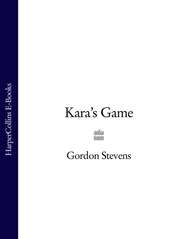По всем вопросам обращайтесь на: info@litportal.ru
(©) 2003-2024.
✖
Provo
Автор
Год написания книги
2018
Настройки чтения
Размер шрифта
Высота строк
Поля
The woman was in her late twenties or early thirties, dark-haired and tall, smartly dressed despite the heat. He saw her through the trees – as if she had suddenly appeared from nowhere. She smiled at him as she always did and went inside. In all the times they had met in such a way, the priest suddenly thought, the woman had never once spoken to him.
The church was cool, the image of the Virgin looking down and the candles on the right of the altar. The woman knelt, took one from the black metal box and held the wick against one of those flickering in front of her.
The wax ran down the candle and burned her fingers. Her face was still, as if she had not noticed the pain or was accustomed to it.
‘Remember, o most gracious Virgin Mary, that never was it known that anyone who asked your help was left unanswered . . .’
The Memorare to her father, mother and her brother, and the plea for the salvation of their souls. Even now she remembered the day she had been taken from them, the days they had been taken from her. Even now the details of their deaths burned into her mind as the wax burned into her flesh.
There was no one else in the church. The woman placed the candle on the stand and stood up, the priest watching from the doorway. She folded a £20 note into the poor box and passed him, smiling her thanks as she did so, then she walked quickly through the churchyard. The priest closed and locked the doors and walked down the steps, along the path and paused under the headstone. The statue was of marble, the expression on the face was serene and the wings were folded. The Angel of Death to some, he reflected, the Saviour and Redeemer to others.
In life as in death, he supposed.
The afternoon was warm and the sweat trickled down the back of his collar. By the time he reached the gate the visitor had disappeared.
The car was parked half a mile away. Instinctively she checked the street – for the woman with the pram whom everyone else would accept as commonplace, for the motor-cycle which no one else would notice, for the car or van with the two people in the front seat – then drove the eight miles to the house where she had been raised. The tea was laid – Sunday linen and china, cucumber sandwiches and fruit cake. The French windows to the garden were open and the children were playing croquet on the lawn.
She kissed her father and her mother on the cheek and sat by her brother.
1 (#ulink_bd9acf4c-50e6-5d7f-92ce-acc865c54499)
In the end, McKendrick knew, it would all depend on the man called Reardon: whether he followed the pattern of the past weeks, whether his wife was at home when they called, whether his son and daughter had gone out to play.
He woke at five, the sound of the pipes and the drums rattling through his mind and the details of the next eighteen hours weaving their apparently separate journeys through his brain. For thirty minutes he lay still, staring at the ceiling, the pipes and drums still haunting him and the Walther on his right side, beneath the sheet where he had placed it five hours before, even in what he considered a safe house, his hand resting on it all night and his fingers wrapped around it.
Belfast, 12 July.
The day the Orangemen marched with their rolled umbrellas and their bowler hats and banners. The day the Protestants stirred their blood to the beat of the drums and the echo of the bugles in commemoration of William’s victory at the Battle of the Boyne 300 years before. The day the Brits and the RUC kept the Catholics at bay so that the Ulstermen could claim the Six Counties as their own.
The sun touched the window. He rolled off the bed, washed, shaved and dressed, and went to the rear door, not waking the family in the bedrooms at the front. Even though it was not yet twenty minutes to six, McKendrick waited till he saw Rorke in the alleyway at the rear, and even then he did not leave the house. Rorke was 23, thinner than McKendrick, with longer hair, and had been his minder for the past two years. He checked quickly and efficiently, then nodded. McKendrick left the house and walked behind him to the Granada parked at the end. The car was silver-grey and inconspicuous, registered to a baker in Springfield who was not on the security checklist. The driver was smoking and the engine idling. McKendrick slipped into the back seat, Rorke beside him, and the car pulled away.
It was still quiet, the first warmth seeping into the morning and the first security forces on the streets, the first surveillance helicopter chattering across the sky. When the patrols were out everything was normal, McKendrick knew. It was only when there were no patrols, no eyes in the sky, that you began to worry. It was then that they were clearing an area for the shoot-to-kill bastards from E4A or 14th Int or the SAS.
They turned into Beechwood Street. The houses were terraced with small gardens in front, the majority consisting of a square of grass surrounded by flowers but some of them paved. Most of the cars were second-hand and the curtains of the bedrooms were still drawn. In front of them the street curved slightly to the left, then straightened just before the point where Reardon lived. It was eight minutes past six, twelve minutes to wait. McKendrick tucked lower into the rear seat and wound down the window. The driver moved slowly along Beechwood Street, turned left at the end and stopped twenty yards from the junction so that they could see the van which came to pick up Tommy Reardon but would not be noticed themselves.
The planning had been immaculate, of course, the policy objective approved by the Army Council in Dublin and the military details agreed by the Northern Command. Knowledge of it had been restricted to those who would take part, and even then each section had been briefed only on the part it would play, unaware not only of the overall plan, but even unaware that an overall plan existed. Each of the North Belfast companies would be involved in the riots and bombings that day, each action soaking up more of the security forces, the timings and locations precise and vital, until the moment came when McKendrick and his people would take over. And seventy men coiled like springs in the Crum – the bleak and God-forsaken prison on the Crumlin Road. Seventy battle-hardened Provisional IRA men – bombers, gunmen and activists – with the explosives they would use to break their way to the main gate already smuggled in and only the gate between them and freedom. And all on Orange Day, all depending on the little bastard called Tommy Reardon. In the still of the morning – perhaps in the years of hatred captured and swirling in his mind – McKendrick heard the faintest sound of the pipes and the drums.
It was twenty minutes past six.
The Transit came down the road in front of them. The workmen were packed inside it and the vehicle had been sprayed blue, covering the name of the building company which had once been printed on its sides. Rorke left the Granada and walked casually to the junction, cigarette in hand. Sixty yards away Reardon left the house, climbed into the Transit, and the vehicle pulled away, the exhaust rattling and a thin line of blue smoke drifting from it.
Even though McKendrick had been baptized into the faith, it was of no concern to him that Reardon and his wife were also Catholic, or that their son and daughter were of the age where they would make their first Holy Communion. Reardon was a digger driver and the company for whom he worked did the occasional job for what might loosely be called the security forces. Both had been warned. Reardon was therefore a legitimate means to an even more legitimate end.
Rorke turned the corner, ground the cigarette on the pavement, and climbed into the car. McKendrick sat up and looked across at him. The minder nodded and the driver pulled away.
*
The site was surrounded by six-foot-high chain fencing and illuminated at night by spotlights. The Transit bumped across the ruts at the entrance and stopped by the Portacabin at the side of the agent’s office. Reardon left his bag in the hut and collected the keys to the digger. The cab door was padlocked. He knelt down and examined the axle and undercarriage, his fingers searching delicately in the places where a bomb might have been concealed. The routine was as automatic as changing the Transit route to and from work each day when the job was outside Belfast. Only when he was satisfied did he unlock the door, climb in, wedge the photograph of his wife and children in the corner of the windscreen, and start the engine.
Tommy Reardon was 32 years old. He and Marie had married when he was twenty and she was nineteen. Their children were eight and seven, and there was a possibility – not yet confirmed – of a third. Reardon had left school at fifteen and served his apprenticeship at Harland and Wolff, losing his job when the yard cut back on its labour force. A year later he had begun work at the De Lorean car plant, leaving when it closed. After his second term of unemployment he had found work with the building firm of Ellis and Knight. Ten months later he had received his first threat. Six months ago an uncle in England had secured him a job at the Ford plant in Eastleigh, near Southampton. Two weeks before he was due to leave, the company had announced major cutbacks and voluntary redundancies for 500 of its existing workforce.
The morning was hot and the site busy. At eleven he stopped for ten minutes, pouring himself a coffee from the flask Marie had made that morning. At one he sat in the Portacabin with the other men from the Transit.
‘So how’s the Pope today?’ The man who asked was a Protestant.
‘Still blessing the world.’ Reardon opened his sandwiches. ‘Where’s the umbrella? Thought you’d be carrying one.’
The conversation was quiet but cutting, each directing his words not at the symbols of the other’s religion but at the bigotry of his own.
The Protestant looked back at him. ‘Typical Taig.’ He sniffed and looked out the window. ‘No point carrying an umbrella unless it’s raining, is there?’
The marching began just before nine, the surveillance helicopters in the sky above the Catholic areas of the city, the VCPs – vehicle checkpoints – suddenly and swiftly in place for fifteen minutes, then switched to another area of the Catholic heartland, and the army and RUC patrols sweeping the Catholic areas on the so-called census patrols, knocking on doors and checking on the whereabouts of males listed on the census reports, checking if known or suspected IRA activists or sympathizers were on the move. At one in the afternoon the first incident occurred – an apparently random attack on a security vehicle by a group of Catholic youths. Half an hour later a second incident took place, seemingly unrelated but provoking a Protestant reaction and sucking in police and army manpower; forty minutes later a third. By three in the afternoon the security problem was escalating, the incidents building suddenly and brutally into running battles, with police and army units intended to be held in reserve suddenly committed, and men not due to be on duty until the evening called in and placed on stand-by. At four the first petrol bomb was thrown, the crowd retreating quickly and orderly and the troops following, apparently beating them back but moving into the killing zone where the Provo snipers were waiting. At 4.20 the first soldier was shot by a gunman positioned at the Divis flats, ten minutes later a second, this time fatally. At 4.40 the Belfast Telegraph received the first bomb warning of the day. Half an hour later, with just enough time to clear the area, a five-pound bomb exploded in the city centre.
*
Tommy Reardon parked the digger, switched off the engine, padlocked the cab, returned the keys to the site office and walked to the Transit. It was six o’clock. The other men climbed in and the van pulled out of the gates.
At least it wasn’t dark, at least they weren’t in the country. Particularly after the first threats, and especially in the drives back from some of the sites twenty or thirty miles outside Belfast, he had prayed as they approached vehicles parked by the roadside in case they contained a bomb, or scoured the road ahead for signs of land mines and the countryside on either side from which the bombers would activate them. Had felt the panic every time a vehicle pulled in front of them in case it stopped and the men in the balaclavas leapt out and held them up, asked their names and religions, picked out the Catholics or the Protestants and took them to the ditch at the roadside. UFF or IRA, it didn’t matter. All bastards.
The Transit turned into Beechwood Street and stopped outside his house. Reardon climbed out, shut the door, banged on the side, and watched as it trundled down the road, the exhaust rattling and the smoke hanging in the air. The street was quiet, a cluster of children playing ball and two women disappearing into a house twenty yards away. He smiled at them, walked up the path, unlocked the Yale and went inside. The smell of cooking and the sound of laughter came from the kitchen, at the rear. He dropped his bag on the hall floor, closed and locked the door, hung up his coat, kissed Marie and the kids and went upstairs. By the time he had washed and changed the supper was on the table.
The front door bell rang.
‘I’ll get it.’ The boy pushed back his chair and ran into the hall. One of his son’s friends, Reardon assumed. ‘You can play after supper.’ The boy stretched up and unlocked the door, his mother just behind him.
Rorke was wearing a donkey jacket and what appeared to be a woollen cap. ‘Is Tommy in?’ Even in the shadows of the hallway he sensed the way she tightened and smelt the fear which gripped her. ‘He left his wallet in the motor, must have dropped out. I thought he might need it tonight.’ He reached in his pocket.
The donkey jacket was the same as all the men wore. Marie relaxed, stood back. ‘Come in, we’re just eating.’
The Sierra at the top of the street edged forward.
Rorke stepped inside, pulled the balaclava over his face, and spun the woman round, his left hand clamped tight over her mouth to prevent her screaming and his right hand taking the Smith and Wesson from inside the jacket. The Sierra stopped outside the house, the two men stepped nonchalantly out and walked casually up the path and into the house, pulling the hoods over their heads and taking the AK47, with its folding stock, and the Czech CZ automatic pistol from their coats the moment they were inside.
‘Who is it?’ Reardon leaned across and saw the figures, realized. Tried to work out whether he could get through the back door before they shot him. Whether he could at least get his daughter out.
This happens to other people, not us, the thought screamed through Marie’s head. She grabbed the boy and held him tight as Rorke pushed them into the sitting-room. Behind him one gunman bundled Reardon and his daughter into the room and the second closed and locked the. front door, then the kitchen door at the back.
‘Switch on the telly and close the curtains.’
Marie tried to stop trembling, to do as Rorke instructed. Then she stood in the middle of the floor, between the gunmen and her husband, the children clutching her skirt and the prayer running through her mind. They hadn’t shot him yet. Please, sweet Mary, Mother of God, may they have made a mistake. Please may they not have come for her husband after all.
‘Time to pay, Tommy.’
The children came out of the first shock and began to sob.
‘Not here. Not in front of them.’ Reardon moved slightly so that he was separated from his family, so that if they shot him they wouldn’t hit his wife and children.
‘You think we’re going to stiff you?’ There was amusement in Rorke’s voice. ‘You think I’m going to put the muzzle of this against your head or down your throat and blow your brains out?’ His background had drained any mercy from him and his years with McKendrick had given his violence an edge, the beginning of a mirror image of the older man. ‘No, Tommy boy. We just want to borrow you for a few hours, do a wee job for us.’









